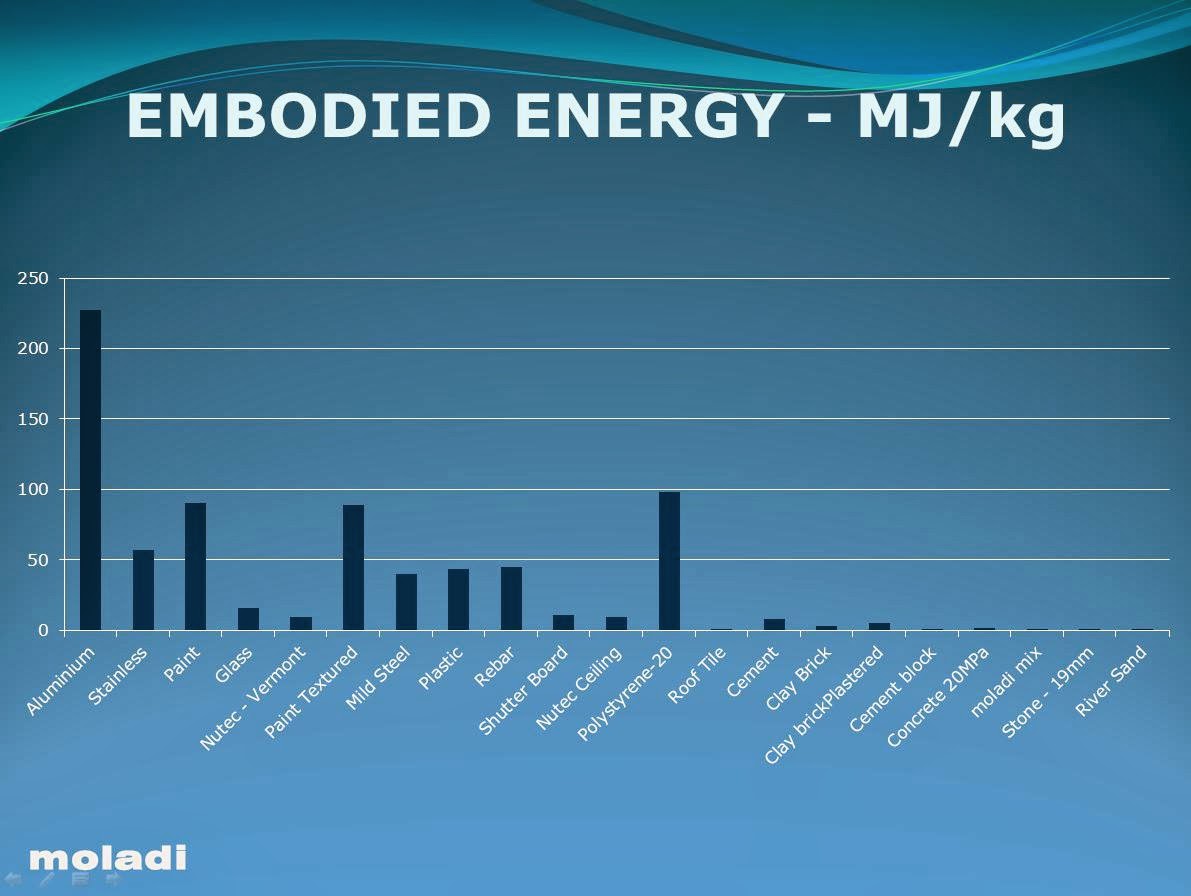Embodied Energy in Construction Material
Embodied Energy in Construction Material-moladi
 |
Embodied Energy in Construction Materials |
Embodied Energy
Embodied Energy is the sum of all the energy required to produce any goods or services, considered as if that energy was incorporated or 'embodied' in the product itself. The concept can be useful in determining the effectiveness of energy-producing or energy-saving devices, or the "real" replacement cost of a building, and, because energy-inputs usually entail greenhouse gas emissions, in deciding whether a product contributes to or mitigates global warming. One fundamental question is: does the device produce more energy or save more energy than it took to make it?Embodied energy is an accounting method which aims to find the sum total of the energy necessary for an entire product life-cycle. Determining what constitutes this life-cycle includes assessing the relevance and extent of energy into raw material extraction, transport, manufacture, assembly, installation, dis-assembly, deconstruction and/or decomposition as well as human and secondary resources. Different methodologies produce different understandings of the scale and scope of application and the type of energy embodied.
www.moladi.com
Keywords - moladi, energy, embodied energy, construction materials, production, homes, sustainable, green, zero energy, life-cycle, aluminium, cement, concrete, steel, wood, prefab, insulation, thermal properties, reusable plastic formwork,


